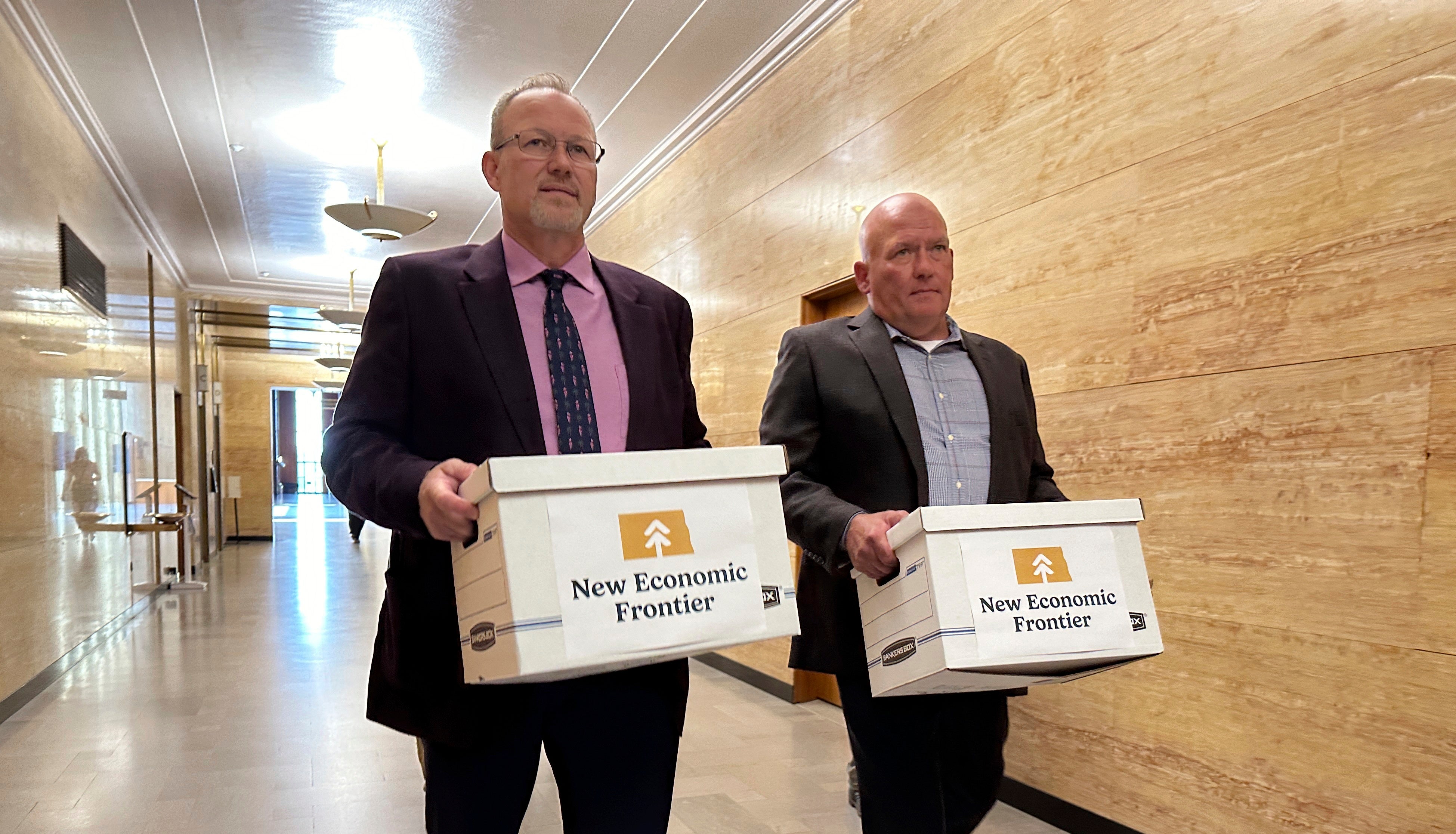North Dakota voters to weigh in again on marijuana legalization
North Dakota voters will decide — again — whether to legalize recreational marijuana in the November general election

A ballot initiative to legalize recreational marijuana in North Dakota has qualified for the November election, the state's top election official said Monday. That sets up another vote on the issue in the conservative state after voters and lawmakers rejected previous efforts in recent years.
North Dakota Secretary of State Michael Howe said nearly 19,000 signatures were accepted after his office's review, several thousand more than was needed to earn placement on the ballot. The group that sponsored the measure, New Economic Frontier, had submitted more than 22,000 signatures in early July.
Measure leader Steve Bakken, a Burleigh County commissioner and former Bismarck mayor, said law enforcement resources would be better directed at opioids and fentanyl than marijuana. The initiative also is an effort to head off any out-of-state measure that might have unmanageable results, he said.
The 20-page statutory measure would legalize recreational marijuana for people 21 and older to use at their homes and, if permitted, on others’ private property. The measure also outlines numerous production and processing regulations, prohibited uses — such as in public or in vehicles — and would allow home cultivation of plants.
The measure would set maximum purchase and possession amounts of 1 ounce of dried leaves or flowers, 4 grams of a cannabinoid concentrate, 1,500 milligrams of total THC in the form of a cannabis product and 300 milligrams of an edible product. It would allow cannabis solutions, capsules, transdermal patches, concentrates, topical and edible products.
Marijuana use by people under 21 is a low-level misdemeanor in North Dakota. Recreational use by anyone older is not a crime — but possessing it is, with penalties varying from an infraction to misdemeanors depending on the amount of marijuana. Delivery of any amount of marijuana is a felony, which can be elevated depending on certain factors, such as if the offense was within 300 feet (91 meters) of a school.
In 2023, 4,451 people statewide were charged with use or possession of marijuana, according to North Dakota Courts data requested by The Associated Press.
North Dakota voters approved medical marijuana in 2016, but rejected recreational initiatives in 2018 and 2022. In 2021, the Republican-led state House of Representatives passed bills to legalize and tax recreational marijuana, which the GOP-majority Senate defeated.
Republican State Rep. Matt Ruby, who was a member of the sponsoring committee, said in a statement that the priority now will be to tell voters about the economic growth opportunities, the more effective approach to regulation and easier access to medical marijuana.
“Our goal now is to educate voters on why we believe this to be a great step forward for our state,” he said.
The Brighter Future Alliance, an organization opposed to the measure, said in a statement that the supporters “won't take no for an answer" after multiple defeats.
“The people of North Dakota soundly rejected the idea of recreational marijuana in 2018 and 2022, but here they are again,” said Patrick Finken, the group's chair.
Twenty-four states have legalized recreational marijuana for adults. Ohio did so most recently, by initiative in November 2023. Measures will be on the ballot in Florida and South Dakota in November.
In May, the federal government began a process to reclassify marijuana as a less dangerous drug.
Bookmark popover
Removed from bookmarks